- Home
- Daphne Du Maurier
The Breaking Point: Short Stories Page 13
The Breaking Point: Short Stories Read online
Page 13
‘Sir Johnson spend-a the day here,’ he said. ‘All the day he lie on the balcony with his, how-do-you-call-them?’
He raised his hands in the gesture of field-glasses, and swerved from side to side. His gold-filled teeth showed as he smiled.
‘Mr Bertie Poole, different altogether,’ he added. ‘A speed-boat to the Lido, and back here after dark. Little dinners, little parties, with his friends. He made-a de whoopee.’
The knowing wink filled me with disgust. Officiously he began to pour out the coffee for me. It was too much.
‘Look here,’ I said, ‘I don’t know your name, and I don’t know how this business has come about. If you have come to an understanding with the clerk at the Hotel Byron it’s nothing to do with me.’
He opened his eyes in astonishment.
‘You don’t like-a the apartment?’ he said.
‘Of course I like it,’ I replied. ‘That’s not the point. The point is, I made my own arrangements and now . . .’
But he cut me short.‘Don’t worry, don’t worry,’ he said, waving his hand. ‘You pay here less than you pay at Hotel Byron, I see to it. And nobody come to disturb you. Nobody at all-a.’ He winked again, and moved heavily towards the door. ‘If there is anything you want,’ he said, ‘just ring-a the bell. OK?’
He left the room. I poured the coffee into the Grand Canal. For all I knew it might be poisoned. Then I sat down to think out the situation.
I had been in Venice for three days. I had booked, as I thought, my room at the Hotel Byron for a fortnight. I had, therefore, ten days left of my holiday. Was I prepared to spend the ten days in this delicious apartment, at what I had been assured was no extra expense, under the aegis of this tout? He apparently bore no malice towards me for his tumble in the canal. The sticking plaster bore evidence to his fall, but the subject had not been mentioned. He looked less sinister in his light-grey suit than he had done in the white mackintosh. Perhaps I had let my imagination run away with me. And yet . . . I dipped my finger in the coffee-pot, and raised it to my lips. It tasted all right. I glanced at the telephone. If I lifted it his odious American voice would answer. I had better telephone the Hotel Byron from outside, or, better still, make my inquiry in person.
I locked the cupboards and the chest-of-drawers, and my suitcases too, and pocketed the keys. I left the room, locking the door of the apartment. No doubt he would have a pass-key, but it could not be helped. Then I went downstairs, walking-stick at the ready in case of attack, and so out into the street. No sign of the enemy anywhere below. The building appeared uninhabited. I went back to the Hotel Byron and tried to get some information from the staff, but my luck was out. The clerk at the reception desk was not the one who had telephoned me in the morning about the change of room. Some new arrival was waiting to check in, and the clerk was impatient. Because I was no longer under the roof I did not interest him. ‘Yes, yes,’ he said, ‘it’s all right, when we are full here we make arrangements to board our guests outside. We have had no complaints.’ The couple waiting to check in sighed heavily. I was holding them up.
Frustrated, I left the desk and walked away. There seemed nothing to be done. The sun was shining, a light breeze rippled the water of the lagoon, and the promenaders, without coats and hats, strolled peacefully, taking the air. I supposed I could do the same.After all, nothing very grave had happened. I was the temporary owner of an apartment overlooking the Grand Canal, a matter to strike envy into the breasts of all these tourists. Why should I worry? I boarded a vaporetto, and went and sat in the church by the Accademia to gaze at the Bellini Madonna and Child. It calmed my nerves.
I spent the afternoon sleeping and reading upon my balcony without benefit of field-glasses - unlike Sir Johnson, whoever he might be - and nobody came near me. As far as I could see none of my things had been touched. The little trap I had set - a hundred lire note between two ties - was still in place. I breathed a sigh of relief. Possibly, after all, things would work out well.
Before going out to dinner I wrote a letter to my superior. He was always inclined to patronize me, and it was something of a coup to tell him that I had found myself a delightful apartment with quite the finest view in Venice. ‘By the way,’ I said, ‘what chance is there at the Majestic for young waiters to train? There is a very good lad here, of excellent appearance and manners, just the right type for the Majestic. Can I give him any hope? He is the sole support of a widowed mother and orphan sister.’
I dined in my favourite restaurant - I was persona grata by now, in spite of the lapse of the night before - and strolled on to the Piazza San Marco without a qualm.The tout might appear, white mackintosh and all, but I had dined too well to care. The orchestra was surrounded by sailors from a destroyer which had anchored in the lagoon. There was much changing of hats, and laughter, and demanding of popular tunes, and the audience entered into the fun, clapping the sailor who pretended to seize the fiddle. I laughed uproariously with the rest of them, Ganymede by my side. How right my sister had been to encourage me to go to Venice instead of to Devon. How I blessed the vagaries of her cook!
It was in mid-laughter that I was carried out of myself. There were clouds above my head and below me, and my right arm, outstretched on the empty chair beside me, was a wing. Both arms were wings, and I was soaring above the earth. Yet I had claws too. The claws held the lifeless body of the boy. His eyes were closed. The wind currents bore me upward through the clouds, and my triumph was such that the still body of the boy only seemed to me more precious and more mine. Then I heard the sound of the orchestra again, and with it laughter and clapping, and I saw that I had put out my hand and gripped Ganymede’s, and he had not withdrawn it, but had let it remain there.
I was filled with embarrassment. I snatched mine away and joined in the applause. Then I picked up my glass of curaçao.
‘Fortune,’ I said, raising my glass to the crowd, to the orchestra, to the world at large. It would not do to single out the child.
Ganymede smiled. ‘The signore enjoys himself,’ he said.
Just that, and no more. But I felt he shared my mood. An impulse made me lean forward. ‘I have written to a friend in London,’ I said, ‘a friend who is a director of a big hotel. I hope to have an answer from him in a few days’ time.’
He showed no surprise. He bowed, then clasped his hands behind his back and looked over the heads of the crowd.
‘It is very kind of the signore,’ he said.
I wondered how much faith he had in me, and whether it exceeded that which he put in his friends in Rome.
‘You will have to give me your name and all particulars,’ I told him, ‘and I suppose a reference from the proprietor here.’
A brief nod of the head showed that he understood. ‘I have my papers,’ he said proudly, and I could not help smiling, thinking of the dossier that probably contained a report from his school and a recommendation to whoever might employ him.‘My uncle too will speak for me,’ he added. ‘The signore has only to ask my uncle.’
‘And who is your uncle?’ I inquired.
He turned to me, looking for the first time a little modest, a little shy. ‘The signore has moved to his apartment in the Via Goldoni, I believe,’ he said. ‘My uncle is a great man of business in Venice.’
His uncle . . . the appalling tout was his uncle.All was explained. It was a family relationship. I need never have worried. Instantly I placed the man as the brother of the nagging mother, both of them, no doubt, playing on the feelings of my Ganymede, who wished to show his independence and get away from them. Still, it had been a narrow escape. I might have offended the man mortally when he took his tumble into the canal.
‘Of course, of course,’ I said, pretending I had known all the time, for he seemed to take it for granted that this was the case and I had no desire to seem a fool. Then I went on, ‘A very comfortable apartment. Do you know it?’
‘Naturally I know it, signore,’ he said, smiling. ‘It is I wh
o will bring you your breakfast every morning.’
I nearly fainted. Ganymede bring my breakfast . . . It was too much to absorb in one moment. I concealed my emotion by ordering another curaçao, and he darted off to obey me. I was, as the French say, bouleversé. To be tenant of the delicious apartment was one thing - and at no extra cost - but to have Ganymede thrown in, as it were, with my breakfast was almost more than flesh and blood could stand. I made an effort to compose myself before he returned, but his announcement had thrown me into such a flutter that I could hardly sit in my seat. He was back, with the glass of curaçao.
‘Pleasant dreams, signore,’ he said.
Pleasant dreams, indeed . . . I had not the courage to look at him. And when I had swallowed my curaçao I took advantage of his temporary summons by another client to slip away, although it was long before midnight. I got back to the apartment by instinct rather than by conscious thought - I had not seen where I was going - and then noticed, on the table, the still unposted letter to London. I could have sworn I had taken it with me when I went out to dinner. However, the morning would do. I was too agitated to go out again tonight.
I stood on the balcony and smoked another cigar, an unheard-of excess, and then went through my small store of books with the idea of presenting one to Ganymede when he brought me my breakfast. His English was so good that it needed a tribute, and the idea of a tip was somehow distasteful. Trollope was not right for him, nor Chaucer either. And the volume of Edwardian memoirs would be quite beyond his understanding. Could I bear to part with my well-worn Shakespeare Sonnets? Impossible to come to a decision. I would sleep on it - if I could sleep, which seemed very doubtful. I took two soneryl tablets, and passed out.
When I awoke it was past nine o’clock. The traffic on the Canal might have indicated high noon. The day was brilliantly fine. I rushed from my bed to the bathroom and shaved, a thing I usually did after breakfast, and then, putting on my dressing-gown and slippers, moved the table and the chair on to the balcony. Then, in trepidation, I went to the telephone and lifted the receiver. There came the buzz and the click, and with a rush of blood to the heart I recognized his voice.
‘Buon giorno, signore. You slept well?’
‘Very well,’ I answered. ‘Will you bring me a café complet?’
‘Café complet,’ he repeated.
I hung up and went and sat on the balcony. Then I remembered I had not unlocked the door. I did this, and returned to the balcony. My excitement was intense, and irrational. I even felt a trifle sick. Then, after five minutes that seemed eternity, came the knock on the door. He entered, tray poised high at shoulder level, and his bearing was so regal, his carriage so proud that he might have been bringing me ambrosia or a swan instead of coffee and a roll and butter. He was wearing a morning coat with thin black stripes, the type of jacket worn by valets at a club.
‘A good appetite, signore,’ he said.
‘Thank you,’ I replied.
I had my small present ready on my knee. The Shakespeare Sonnets must be sacrificed.They were irreplaceable in that particular edition, but no matter. Nothing else would do. First, though, before the presentation, I would sound him.
‘I want to make you a little present,’ I told him.
He bowed in courtesy.‘The signore is too good,’ he murmured. ‘You speak English so well,’ I continued, ‘that you need to hear only the best. Now, tell me, who do you think has been the greatest Englishman?’
He considered the matter gravely. And he stood, as he did on the Piazza San Marco, with his hands clasped behind his back.
‘Winston Churchill,’ he said.
I might have known it. Naturally the boy lived in the present, or it would be more correct to say, in this instance, the immediate past.
‘A good answer,’ I said, smiling, ‘but I want you to think again. No, I’ll put my question another way. If you had some money to spend, and you could spend it on anything you wanted connected with the English language, what would be the first thing you would buy?’
This time there was no hesitation.‘I would buy a long-playing gramophone record,’ he said, ‘a long-playing gramophone record of Elvis Presley or Johnnie Ray.’
I was disappointed. It was not the answer I had hoped for. Who were these creatures? Crooners? Ganymede must be educated to better things. On second thoughts, I would not part with the Sonnets.
‘Very well,’ I said, hoping I did not sound offhand, and I put my hand in my pocket and took out a thousand-lire note, ‘but I suggest you buy Mozart instead.’
The note disappeared, crumpled out of sight in his hand. It was discreetly done, and I wondered if he had been able to glimpse the figure. After all, a thousand lire is a thousand lire. I asked him how he managed to evade his duties at the café to bring me my breakfast, and he explained that his work did not begin there until just before midday. And, anyway, there was an understanding between the proprietor of the café and his uncle.
‘Your uncle,’ I said, ‘seems to have an understanding with many people.’ I was thinking of the reception clerk at the Hotel Byron.
Ganymede smiled. ‘In Venice,’ he said, ‘everybody knows everybody.’
I noticed that he glanced with admiration at my dressing-gown, which, when I had bought it for travelling, I had thought a shade too bright. Remembering the gramophone records, I reminded myself that he was, after all, nothing but a child, and one should not expect too much.
‘Do you ever have a day off ?’ I asked him.
‘On Sundays,’ he said. ‘I take it in turn with Beppo.’
Beppo must be the unsuitable name of the swarthy youth at the café.
‘And what do you do on your day off?’ I inquired.
‘I go out with my friends,’ he replied.
I poured myself more coffee, and wondered if I dared. A rebuff would be so hurtful.
‘If you have nothing better to do,’ I said, ‘and should be free next Sunday, I will take you for a trip to the Lido.’ I felt myself blush, and bent over the coffee-pot to hide it.
‘In a speed-boat?’ he asked quickly.
I was rather nonplussed. I had visualized the usual vaporetto. A speed-boat would be very expensive.
‘That would depend,’ I hedged. ‘Surely on a Sunday they would all be booked?’
He shook his head firmly. ‘My uncle knows a man who has speed-boats for hire,’ he said. ‘They can be hired for the whole day.’
Heavens above, it would cost a fortune! It would not do to commit myself. ‘We’ll see,’ I said. ‘It would depend upon the weather.’
‘The weather will be fine,’ he said, smiling. ‘It will stay fine now for the rest of the week.’
His enthusiasm was infectious. Poor child, he must have few treats. On his feet all day and half the night serving tourists. A breath of air in a speed-boat would seem like paradise.
‘Very well, then,’ I said. ‘If it’s fine, we’ll go.’
I stood up, brushing the crumbs off my dressing-gown. He took my gesture as one of dismissal, and seized the tray.
‘Can I do anything else for the signore?’ he asked.
‘You can post my letter,’ I said. ‘It’s the one I told you about, to the friend who is a director of a hotel.’
He lowered his eyes modestly, and waited for me to hand him the letter.
‘Shall I see you this evening?’ I asked.
‘Of course, signore,’ he said. ‘I will keep a table for you, at the usual time.’
I let him go and went to run my bath, and it was only when I lay soaking in the hot water that an unpleasant thought occurred to me.Was it possible that Ganymede had also brought breakfast for Sir Johnson, and had gone to the Lido in a speed-boat with Bertie Poole? I dismissed the thought. It was far too offensive . . .
The week remained fine, as he had foretold, and each day I became more entranced with my surroundings. No sign of anyone in the apartment. My bed was made as if by magic. The uncle remained perdu. And in
the morning, as soon as I touched the telephone, Ganymede replied, and brought my breakfast. Every evening the table at the café awaited me, the chair upturned, the glass of curaçao and the half-bottle of Evian in their place. If I had no more strange visions, and no more dreams, at least I found myself in happy holiday mood, without a care in the world, and with what I can only call a telepathic understanding, an extraordinary sympathy, between Ganymede and myself. No other client existed but me. He did his duty, but remained at my beck and call. And the morning breakfasts on the balcony were the high peak of the day.
Sunday dawned fine. The high wind that might have meant a vaporetto was not forthcoming, and when he bore in my coffee and roll the smile on his face betrayed his excitement.
‘The signore will come to the Lido?’ he asked.
I waved my hand. ‘Of course,’ I said. ‘I never break a promise.’
‘I will make arrangements,’ he said, ‘if the signore will be at the first landing-stage to the apartment by half-past eleven.’
And for the first time since bringing my breakfast he vanished without further conversation, such was his haste. It was a little alarming. I had not even inquired about the price.
I attended Mass in St Mark’s, a moving experience, and one that put me in a lofty mood. The setting was magnificent, and the singing could not have been bettered. I looked around for Ganymede, half expecting to see him enter leading a little sister by the hand, but there was no sign of him in the vast crowd. Oh well, the excitement of the speed-boat had proved too much for him.
I came out of the church into the dazzling sunshine, and put on my dark glasses. There was scarcely a ripple on the lagoon. I wished he had chosen a gondola. In a gondola I could have lain full-length, stretched at my ease, and we could have gone to Torcello. I might even have brought the Shakespeare Sonnets with me, and read one or two of them aloud to him. Instead, I must indulge his youthful whim and enter the age of speed. Blow the expense! It would never happen again.
I saw him standing by the water’s edge, changed into brief shorts and a blue shirt. He looked very much younger, a complete child. I waved my walking-stick and smiled.

 Jamaica Inn
Jamaica Inn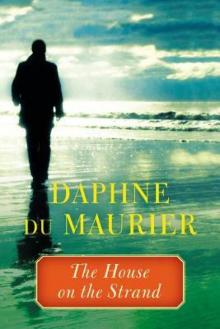 The House on the Strand
The House on the Strand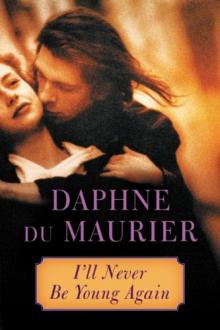 I'll Never Be Young Again
I'll Never Be Young Again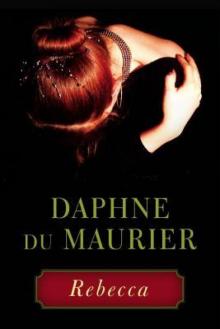 Rebecca
Rebecca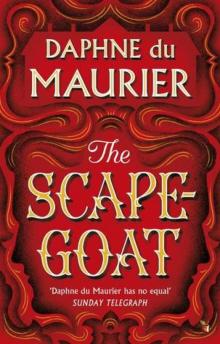 The Scapegoat
The Scapegoat The Birds and Other Stories
The Birds and Other Stories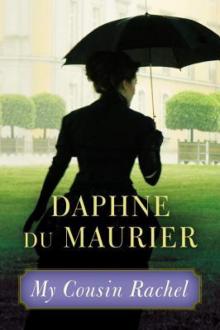 My Cousin Rachel
My Cousin Rachel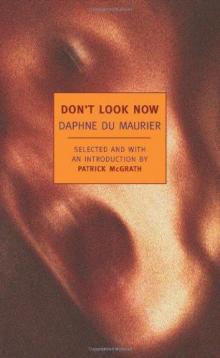 Don't Look Now
Don't Look Now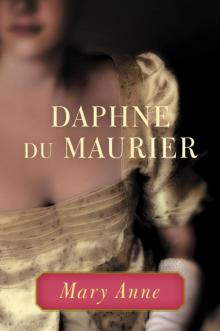 Mary Anne
Mary Anne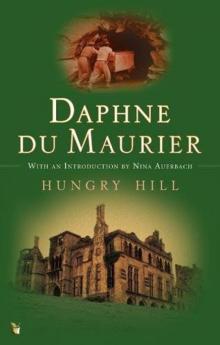 Hungry Hill
Hungry Hill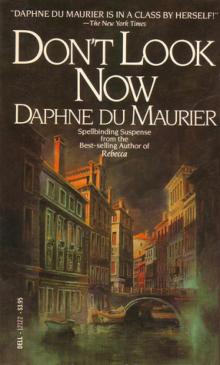 Don't Look Now and Other Stories
Don't Look Now and Other Stories The Loving Spirit
The Loving Spirit Rule Britannia
Rule Britannia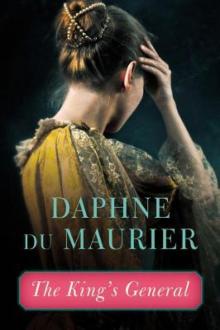 The King's General
The King's General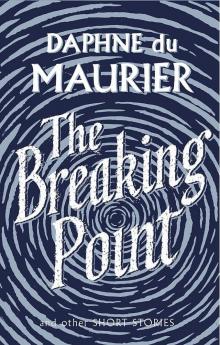 The Breaking Point: Short Stories
The Breaking Point: Short Stories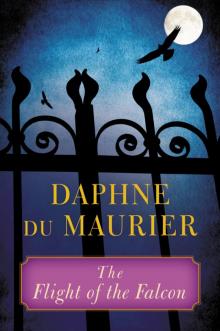 The Flight of the Falcon
The Flight of the Falcon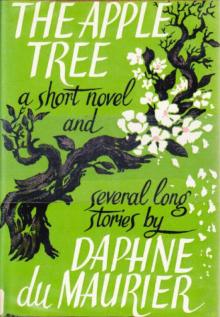 The Apple Tree: a short novel & several long stories
The Apple Tree: a short novel & several long stories The Breaking Point
The Breaking Point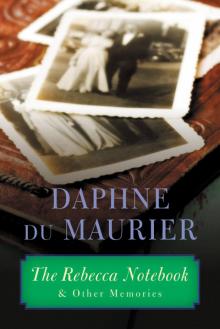 The Rebecca Notebook
The Rebecca Notebook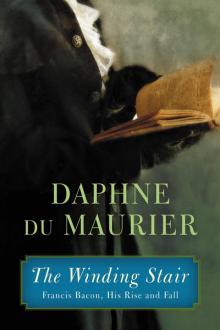 The Winding Stair: Francis Bacon, His Rise and Fall
The Winding Stair: Francis Bacon, His Rise and Fall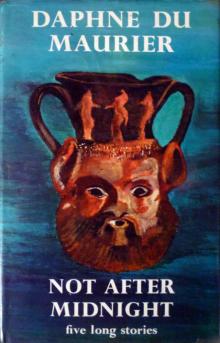 Not After Midnight & Other Stories
Not After Midnight & Other Stories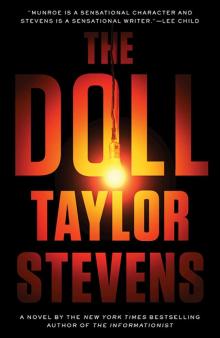 The Doll
The Doll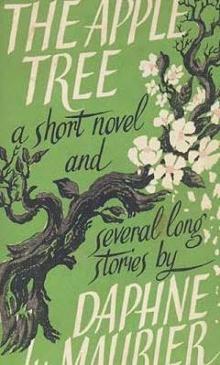 The Apple Tree
The Apple Tree